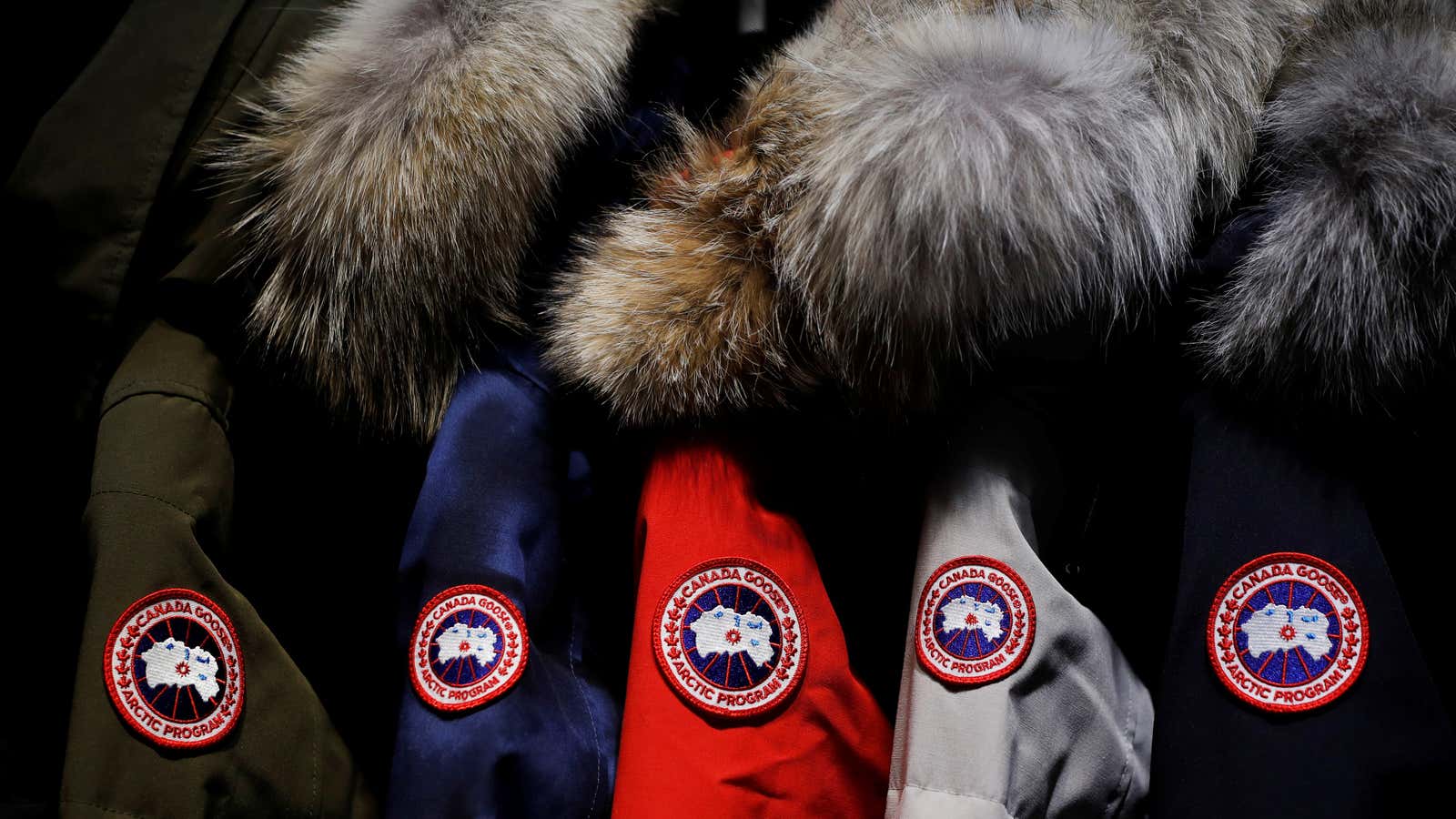Canada Goose is pushing back on claims that it changed its website’s marketing language about ethical sourcing of animal parts and removed a video of a former goose-down supplier because they were flagged as false advertising.
A report by the New York Post yesterday said the Canadian brand, which uses goose down as insulation and coyote fur as trims on its expensive outerwear, quietly altered the language from saying its standards “ensure” suppliers don’t mistreat animals to saying it has a “commitment” to ethical sourcing. The Post also claimed Canada Goose took down statements that it only uses coyotes from overpopulated areas where they’re considered “pests,” and that it removed a video about down traceability.
The video allegedly featured a former supplier to Canada Goose whose workers the activist group PETA says it caught on camera shoving geese into overstuffed cages, handling them by their necks, and stepping on panicked birds. (Canada Goose has denied that the farm shown in PETA’s video was ever one of its suppliers.)
The Post couldn’t determine the exact timing of the changes, but noted that the US Federal Trade Commission (FTC), which polices companies’ business practices, mentioned in a June letter (pdf) that Canada Goose had taken “corrective action” in response to an investigation it was conducting into the company. According to the letter, the probe concerned whether Canada Goose “may have made false or misleading representations about the treatment of geese whose down is used in Canada Goose’s apparel.”
The letter didn’t mention PETA, but it appears PETA, which has long been critical of Canada Goose, was the group making the allegations. Yesterday PETA sent a statement to media saying the FTC had told it that, in response to its complaint, Canada Goose changed the marketing language and took down the video.
Canada Goose told the Post that it routinely updates language on its site, and explicitly stated that any changes “were not made at the behest of the FTC,” noting that the agency didn’t reach any conclusion about whether the company’s prior statements were misleading. “We are appalled by the gross mischaracterization of our long-standing ethical sourcing standards which have only strengthened over time and become more robust,” the company said in a statement to media.
Indeed, the FTC did not conclude that Canada Goose’s statements were misleading—but didn’t find that they weren’t, either. In its June letter, the agency said Canada Goose took “prompt corrective action” such as “removing the advertising claims at issue from the marketplace and clarifying its business practices in marketing materials, among other things.” As a result, the FTC did not need to pursue the matter further, adding, “This action is not to be construed as a determination that a violation of law did not occur, just as the pendency of an investigation should not be construed as a determination that a violation has occurred.”
The letter didn’t specify which advertising claims Canada Goose removed or which business practices it clarified. Canada Goose has not responded to Quartz’s requests for comment. The FTC declined to comment beyond what is written in the letter, saying its investigations are nonpublic.
Whatever the case, the situation has caught the attention of investors. As Bloomberg reported, since the allegations came out that Canada Goose had to change language around ethical sourcing, the company’s stock has fallen.
